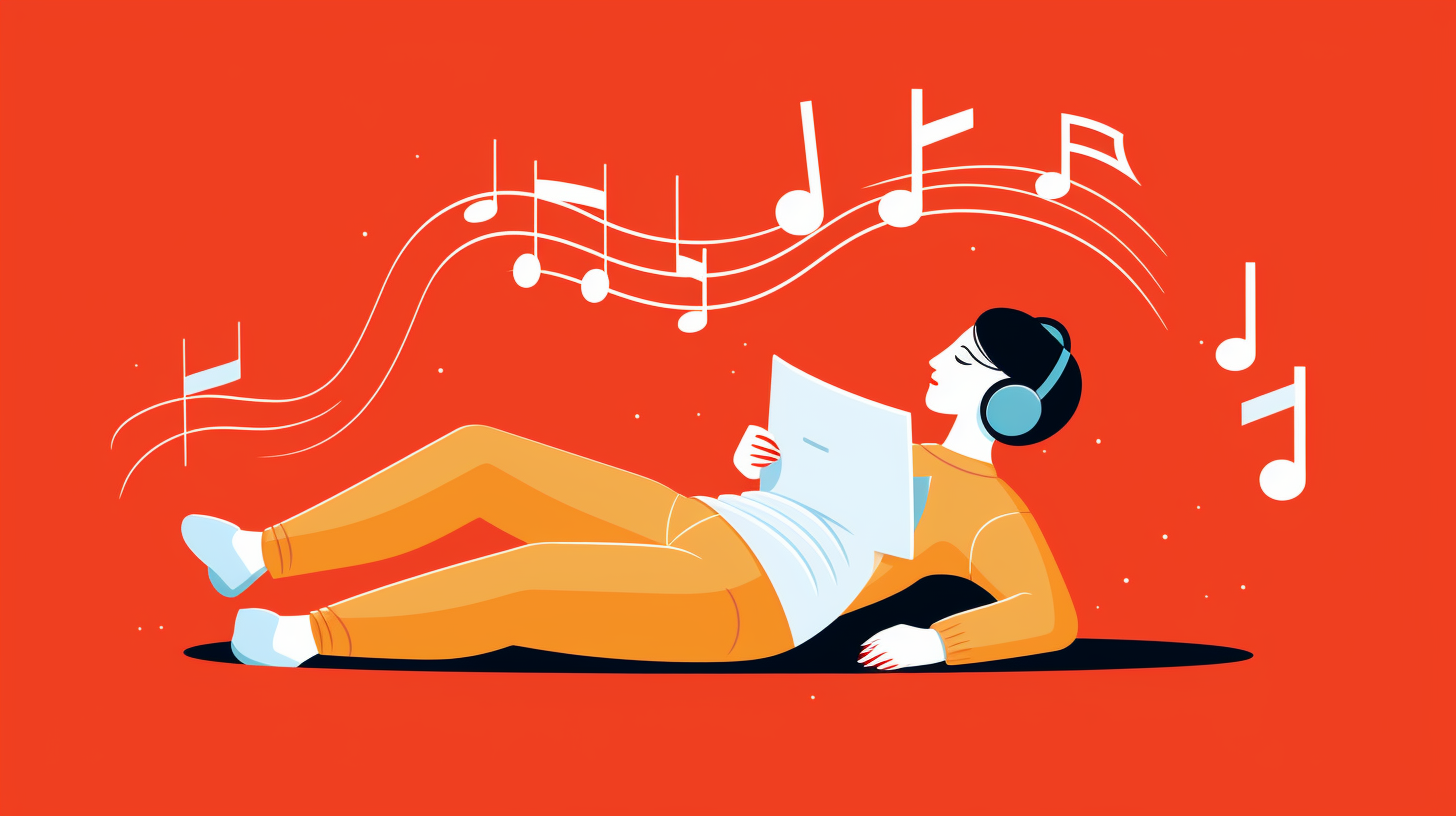Have you ever wondered how does reading reduce stress? It’s not just a cozy pastime; it’s a powerful stress-buster. In this text, you’ll discover the fascinating connection between diving into a good book and melting away stress. You’ll learn why reading is not merely a form of escapism but a mindful activity that can significantly improve your mental health.
We’ll explore how immersing yourself in a narrative can be a potent tool for managing stress, with benefits that rival traditional stress relief methods. From reducing symptoms of depression and dementia to protecting your body from the severe effects of stress, reading is an ally in your wellness journey. Get ready to turn the page on stress management and embrace the tranquility of a good read.
The Connection Between Reading and Stress Reduction
How Does Reading Help Reduce Stress?
When you’re feeling overwhelmed, reading to reduce stress might relieve you. It’s not mere speculation; it’s a practice backed by research. Engaging in reading distracts your mind from daily stressors and shifts your focus to the narratives or information in front of you. This simple act can significantly decrease psychological pressure, providing a necessary break for your mental health.
The Science Behind Reading and Stress Reduction
Have you ever wondered how does reading reduce stress? It’s more than just a claim; there’s actual science that explains how it works. When you read, particularly fiction, your mind is transported to a different world, which helps you detach from the present stress. This mental journey initiates a physical response: your heart rate slows, and your muscles relax.
Here’s what the numbers say about reading reduces stress:
| Reading Activity | Stress Reduction |
| — | — |
| Reading for 6 minutes | 68% |
| Regular reading | Lower depression rates |
These figures reveal a clear message: reading is good for you. It is a portal to different worlds and ideas and offers psychological benefits of reading that can be more powerful than many realize. The next time stress seems impossible, consider picking up a book or jumping into an audiobook; it could be the perfect therapy for your mind and body.
Reading as a Form of Escapism
Fiction as an Escape from Reality
Reading can be your secret portal to different worlds. As you investigate a work of fiction, your surroundings fade away, replaced by the vivid landscapes of the story. Suddenly, you’re no longer you—you’re an adventurer, a dreamer, or a witness to history. Fictional narratives serve as a mental diversion from the stress of daily life, offering a temporary respite for your mind to wander free from the confines of reality.
In just a few moments, by picking up a book or plugging in your headphones to listen to an audiobook, you activate a switch in your brain. This switch directs your thoughts away from immediate anxieties and immerses you into a narrative that demands your full attention. Reading or listening reduces stress, slows your breathing, and relaxes muscles.
A study reveals that just Six Minutes of Reading can lower stress levels by 68%, making it more effective than listening to music or going for a walk. With audiobooks, this escape becomes even more accessible. You don’t need complete silence or a comfortable reading nook; you can lose yourself in a story while commuting, exercising, or during a break at work.
Finding Comfort in Characters and Stories
It’s more than just the plot that draws you into a book; it’s the characters. Witnessing fictional characters navigate struggles similar to your own can be incredibly comforting. You realize you’re not alone in your experiences, and seeing characters overcome obstacles can inspire resilience and impart a sense of hope. Reading helps foster a connection with these characters, enhancing your empathy and psychological health.
Books with solid character development often provide a sense of companionship. In an increasingly isolated world, feeling an alliance with a character’s journey is a powerful tool for mental health. Remember, is reading good for you? Absolutely. You can gain deep insights into different psyches and cultures through reading, especially audiobooks, which add a layer of human narration. These encounters don’t just reduce stress but expand your emotional intelligence.
By engaging with a story, you’re doing more than just enjoying a narrative; you’re participating in an active process of healing and growing. The psychological benefits of reading are vast, extending beyond mere stress reduction to potentially transforming aspects of your emotional well-being. Whether you’re listening to an audiobook during a busy day or reading a printed page at night, every word you consume helps build a stronger, more resilient you.
Reading as a Mindful Activity
The Power of Focused Reading
Reading mobilizes your attention when you investigate a book, leading to a state comparable to a meditative trance. Focused reading is one of the quickest ways to quiet your mind and alleviate stress. Researchers found that just six minutes of reading can significantly reduce stress levels more than other relaxation methods. Here’s what’s necessary for you to understand about the power of focused reading:
- Psychological Benefits of Reading: Your brain is wholly engaged as you read, providing a unique mental workout that strengthens cognitive functions.
- Reading to Reduce Stress: Focused reading is an intentional break from daily life’s chaos, helping you regain composure and peace of mind. By choosing an audiobook, your experience is further enhanced. The soothing cadence of a narrator’s voice can elevate the stress-reducing qualities of a good read. So next time you’re wondering, “Does reading reduce stress?” remember that the answer lies in the power of immersing yourself in a narrative. Is reading good for you? Absolutely, especially when it encapsulates both your auditory and visual senses.
Engaging the Mind and Relaxing the Body
The connection between reading and stress reduction is a symphony of mental engagement and physical relaxation. Here’s a breakdown of how this works:
- Mentally Engaging: Reading through an audiobook, your mind visualizes the content, activates empathy, and stimulates creativity. This mental engagement is central to understanding how reading reduces stress.
- Physical Relaxation: Simultaneously, as your mind wanders through the world of the book, your body tends to follow. Your heart rate decreases, and muscles unwind.
This dual impact is not only beneficial for your reading mental health but also fosters a deeper connection between mind and body wellness. Just imagine yourself listening to an audiobook, transported away from everyday pressures, and you’ll quickly grasp why reading is such an effective method for stress management.
Indulging in a well-narrated story can be a powerful addition to your stress-reduction toolkit. Audiobooks allow you to engage in focused reading anytime, anywhere, making them a superior choice for managing your mental health on the go. Reading reduces stress—whether through the pages of a book or the convenience of an audiobook, you’re giving yourself the gift of well-being.
Reading as a Stress Management Tool
Stress management is crucial for maintaining both physical and mental health. Given the fast-paced nature of modern living, you’re likely searching for practical tools to alleviate your stress. Reading, mainly through audiobooks, has emerged as a remarkable method for managing stress levels.
Reading as a Relaxation Technique
You might wonder, how does reading reduce stress? Reading demands focus, transporting you to different realms and allowing you to momentarily step away from life’s pressures. When you engage with a story, your mind shifts from stress to immersion in a narrative. The psychological benefits of reading are immense; it’s a tranquil activity that can induce a state of calm akin to meditation.
As you jump into an audiobook, listening relaxes your brain. It creates a soothing background that turns your attention away from stress triggers. The beauty of audiobooks lies in their dual engagement – you’re not just taking in the story but also the rhythm and tone of the narration, which can be exceptionally calming. For those who are visually impaired or have other disabilities that make traditional reading a challenge, audiobooks are a godsend, validating that reading mental health benefits are accessible to all.
Also, studies support that reading reduces stress. – It’s been found that just six minutes of reading can significantly lower stress levels. – Aspects like the pacing and narrative can create a sanctuary of peace for your mind.
Reading, primarily through audiobooks, offers an escape route from the stress of everyday life, paving the way for relaxation and mental well-being.
| Reduction in Stress Levels | Reading | Other Activities |
| — | — | — |
| Percentage | 68% | Variable |
Creating a Reading Routine for Stress Relief
Establishing a reading routine for stress relief begins with setting aside time for this activity. Consider integrating audiobooks into your daily schedule. Is reading good for you? Absolutely — and with audiobooks, convenience escalates the experience. Listen during your commute, as you cook, or as part of your bedtime routine. The key is consistency; the more regular you are with your listening, the more pronounced the stress-reducing effects become.
Reading to reduce stress isn’t just another item on your to-do list. It’s an opportunity to enrich your life with stories and knowledge while concurrently lowering your stress levels. Audiobooks simplify consistency; you don’t need to carve out special times or places. Whenever your schedule allows, press play and let the stress melt away.
- Set a specific time: A reading schedule encourages consistency like a gym schedule.
- Ease of access: Audiobooks are portable stress relievers; you can listen on various devices.
- Multitask effectively: Combine reading with other low-energy activities to optimize your time.
Embracing audiobooks as part of your stress management toolkit can transform your psychological well-being. With audiobooks’ versatility and engaging nature, reading reduces stress in ways traditional reading might not achieve. So, the next time you feel overwhelmed, remember that a chapter a day might keep the stress away.
Conclusion
Embrace the tranquility that reading brings to your life. Whether you’re diving into a paperback or listening to an audiobook, you’re giving yourself a valuable gift of calm. As you’ve learned, just a few minutes with a good story can lower your stress levels significantly. Make it a part of your daily routine and watch as your stress fades, replaced by a sense of peace. Audiobooks are your ally, ready to accompany you through the day and enhance your well-being. It’s time to turn the page on stress and start a new chapter in your self-care journey.
Frequently Asked Questions
What are the 5 benefits of reading?
Reading enhances mental capabilities such as improving vocabulary and comprehension, fortifying brain function, diminishing stress, aiding in sleep preparation, helping prevent cognitive decline, and potentially increasing lifespan. To reap these benefits, choosing reading material that interests you is essential.
Does reading actually help you?
Yes, reading fosters better thinking, nurturing critical thinking and problem-solving abilities. It enriches knowledge, hones social skills, and augments communication abilities, making it a powerful tool for intellectual and emotional development.
How can I reduce stress in my life?
To mitigate stress, receive your yearly flu vaccine, maintain regular health check-ups, eat a balanced diet, ensure adequate sleep, stay physically active, moderate alcohol intake, abstain from illicit or non-prescribed drug use, and avoid tobacco products.
Why does reading reduce anxiety?
Reading stimulates social interactions through character identification and empathy, forging a sense of connection. This can be particularly therapeutic for individuals with anxiety or depression, earning reading the label of bibliotherapy—a technique using literature for mental health treatment.
How does reading reduce stress in children?
For children, reading is a haven from stressors, propelling them into different worlds and adventures. It centers their attention away from stress-inducing situations, akin to the relaxation benefits of a 30-minute yoga session, thus assisting in anxiety reduction and overall emotional well-being.




